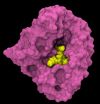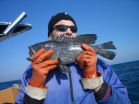(Press-News.org) Over 1,400 species of parasites – viruses, bacteria, fungi, intestinal worms and protozoa – are able to infect humans. In most cases, the right medicine against a parasite cures the patient. If he or she suffers from an infection by two or more species of parasite at the same time, however, it soon becomes more difficult to diagnose and treat. Medication can even exacerbate the medical condition if one pathogen is killed off but the second flourishes. One reason is the little-understood interactions between the parasites that reside in the same host.
In a study published in Proceedings of Royal Society B, an international team of researchers including Professor Owen Petchey from the Institute of Evolutionary Biology and Environmental Studies at the University of Zurich presents a network that explains how different pathogens and parasite groups mutually influence each other in the human body. Surprisingly, the biologists discovered that the par-asites are most likely to interact via the food source they share – not the immune response or directly through contact with other parasites.
Complex overview with clear patterns
Co-infections are very common: Simultaneous infestations by different intestinal worms, for instance, affect around 800 million people worldwide. In order to develop effective treatment approaches for co-infections, says Owen Petchey, we need to understand the structures of the parasite communities in a host – in this case individual humans – and the interactions between the parasites better. The ecol-ogists from Zurich, Liverpool, Sheffield and Edinburgh compiled a list of 305 parasite species, 124 resources in the host and 98 immune system components in a meta-study – then analyzed over 2,900 combinations of all these factors in an unprecedented manner.
The network displays clear patterns: The infected part of the body and the same food resource are the most common contact points that can lead to an interaction between the different parasites. "We found twice as many parasites fighting for the same energy source as parasites that elicit the same immune response and are able to interact in that way," explains Petchey. The manner in which the immune system responds to the individual pathogens seems to be of secondary importance, despite the fact that other studies pointed towards precisely this. The direct influence from one parasite to the next is also rarer, with the exception of HIV, Staphilococcus aureus and the Hepatitis C virus, which are known to interact directly with other pathogens.
Personalized medicine in the spotlight
The network-like overview of the various interactions of parasites that can harm humans goes beyond the usual consideration of parasite pairs. "These results can serve as a basis for the development of new, personalized treatment schemes for infected patients," Petchey hopes. The biologist is currently testing his hypotheses of this synthesis study with different organisms.
INFORMATION:
Literature:
Emily C. Griffiths, Amy B. Pedersen, Andy Fenton and Owen L. Petchey. Analysis of a summary net-work of co-infection in humans reveals that parasites interact most via shared resources. Proceedings of Royal Society B, March 12, 2014. Doi: 10.1098/rspb.2013.2286
Parasites in humans influence each other via shared food sources
2014-03-12
ELSE PRESS RELEASES FROM THIS DATE:
Genes bring music to your ears
2014-03-12
Multiple regions in the human genome are reported to be linked to musical aptitude, according to a study published this week in Molecular Psychiatry. The function of the candidate genes implicated in the study ranges from inner-ear development to auditory neurocognitive processes, suggesting that musical aptitude is affected by a combination of genes involved in the auditory pathway. The research was funded by the Academy of Finland.
The perception of music starts with specialised hair cells in the inner ear, which transmit sounds as electronic signals through the auditory ...
Discrepancies in clinical trial reporting raise questions of accuracy
2014-03-12
In a Yale School of Medicine analysis of 96 research trial results published in top journals, almost all had at least one discrepancy between what was reported on the public clinical trial registry clinicaltrials.gov and what was posted in the journal article.
"This study raises serious questions about the accuracy of results reporting in both clinical trial registries and publications, and the importance of consistent presentation of accurate results," said Joseph Ross, M.D., assistant professor of medicine and public health at Yale School of Medicine and senior author ...
Promoting love can punish sales
2014-03-12
Valentine's Day has come and gone. But those images of romance are still everywhere : a happy couple holding hands in an eharmony ad, two lovebirds sharing a tender kiss in a Nikon camera commercial.
Advertising filled with romantic images, featuring "happy togetherness" in magazines and stores as well as on television and websites might resonate with you if you have a special someone. But if you're single, a new study shows you're not buying.
New research from consumer psychologist Lisa Cavanaugh, assistant professor at the USC Marshall School of Business, reveals ...
A tailor-made molecule against malaria
2014-03-12
The malaria parasite is particularly pernicious since it is built to develop resistance to treatments. The lack of new therapeutic approaches also contributes to the persistence of this global scourge. A study led by Didier Picard, professor at the Faculty of Sciences of the University of Geneva (UNIGE), Switzerland, describes a new class of molecules targeting the two problems at the same time. Using ultra sophisticated computerised modelling tools, the researchers were successful in identifying a type of candidate molecules toxic for the pathogen, but not for the infected ...
Bucking conventional wisdom, researchers find black sea bass tougher than expected
2014-03-12
In a new study, fisheries researchers from North Carolina State University found that black sea bass (Centropristis striata) can usually survive the physical trauma that results from being hauled up from deep water then released at the surface. The finding is part of a larger study of the fish's mortality rate, which will inform stock assessments designed to help ensure that the black sea bass fishery is sustainable.
Black sea bass are bottom-dwelling fish, and are often caught at depths of greater than 60 feet. When the fish are brought to the surface, the rapid change ...
Type 1 diabetes: Gut microbiota networks may influence autoimmune processes
2014-03-12
As part of the BABYDIET study, the scientists compared the composition and interaction of the gut microbiota in children who went on to develop diabetes-specific autoantibodies in their blood with data from children who were autoantibody negative. The BABYDIET study examines the nutritional factors that may influence the risk of diabetes.
Similar bacteria – different interactions
In the course of the study, the team headed by PD Dr. Peter Achenbach and Professor Anette-Gabriele Ziegler from the Institute of Diabetes Research as well as Dr. David Endesfelder and Dr. ...
VLT spots largest yellow hypergiant star
2014-03-12
Using ESO's Very Large Telescope Interferometer (VLTI), Olivier Chesneau (Observatoire de la Côte d'Azur, Nice, France) and an international team of collaborators have found that the yellow hypergiant star HR 5171 A [1] is absolutely huge — 1300 times the diameter of the Sun and much bigger than was expected [2]. This makes it the largest yellow star known. It is also in the top ten of the largest stars known — 50% larger than the famous red supergiant Betelgeuse — and about one million times brighter than the Sun.
"The new observations also showed that this star has ...
Play it again, Sam: How the brain recognizes familiar music
2014-03-12
Research from McGill University reveals that the brain's motor network helps people remember and recognize music that they have performed in the past better than music they have only heard. A recent study by Prof. Caroline Palmer of the Department of Psychology sheds new light on how humans perceive and produce sounds, and may pave the way for investigations into whether motor learning could improve or protect memory or cognitive impairment in aging populations. The research is published in the journal Cerebral Cortex.
"The memory benefit that comes from performing a ...
First thin films of spin ice reveal cold secrets
2014-03-12
Thin films of spin ice have been shown to demonstrate surprising properties which could help in the development of applications of magnetricity, the magnetic equivalent of electricity.
Published today in Nature Communications, a team of researchers based at the London Centre for Nanotechnology (LCN), in collaboration with scientists from Oxford and Cambridge, found that, against expectations, the Third Law of Thermodynamics could be restored in thin films of the magnetic material spin ice.
In the familiar world around us it is always possible to make things colder, ...
International dispute involving California company finds resolution
2014-03-12
International dispute involving California company finds resolution
Article provided by Dorazio Law Office
Visit us at http://www.doraziolawoffice.com/
Business entities often have specific legal needs that are much different from those that most individuals require. When a business is international, or does business with foreign companies, disputes can produce complicated legal issues.
According to a report by the San Diego Business Journal, Accelrys, Inc., a company based out of San Diego, and Borealis AG, a company headquartered in Vienna, Austria, recently ...




